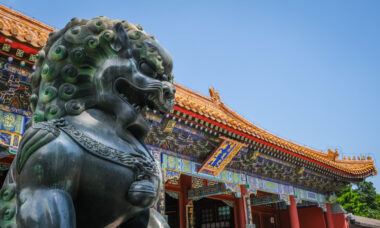 All e-liquid flavours other than tobacco will be banned in China from 1st May, according to the country’s Tobacco Monopoly Administration, which has confirmed administrative measures for e-cigarettes first proposed in December.
All e-liquid flavours other than tobacco will be banned in China from 1st May, according to the country’s Tobacco Monopoly Administration, which has confirmed administrative measures for e-cigarettes first proposed in December.
Manufacturers of e-cigarettes, atomisers, nicotine, and wholesale and retail operators must also obtain tobacco monopoly licences and conduct transactions through the national e-cigarette management platform.
Further rules may also be brought in after the conclusion of a comment period on a new draft consultation paper regarding national e-cigarette product standards released by the monopoly administration.
The standards would set product restrictions, testing methods, and requirements for the packaging, labelling, storage and transportation of e-cigarettes. Interested parties have until 17th March to comment.
A prior consultation ran throughout December and January. China’s Tobacco Monopoly Administration started to solicit opinions from the public on regulating e-cigarettes after adding a new article to the Tobacco Monopoly Law in November 2021, equating e-cigarettes and novel tobacco products with traditional tobacco, with immediate effect.
Light brought into a grey area
The added article 65 states simply: “E-cigarettes and other new tobacco products shall be implemented with reference to the relevant regulations on cigarettes in these regulations.”
Prior to this e-cigarettes existed in a regulatory grey area with little detail on how vaping products would be regulated.
The announcement of the latest regulatory developments has coincided with the presentation of RLX Technology’s earnings.
During the presentation of the results, the company’s founder and CEO Kate Wang told investors that RLX Technology welcomed the finalisation of the measures as it delivered certainty regarding timeline, mode of transaction and product specifics. She added that the new regulatory framework will also provide “more concrete directions in its operations and planning”.
She said: “Given ongoing regulatory scrutiny of e-vapour product quality, sales of counterfeit products will be further curbed, and the users’ rights will be better protected.”
Doubled revenue
However, she said that once the new rules come into force, the barriers to entry into China’s e-vapour industry will become more difficult to penetrate “given the substantial compliance and product development requirements”.
“We are confident that the likely restriction on flavours will not impact the core needs of our users,” she added.
RLX Technology announced that its net revenue more than doubled in 2021, boosted by higher sales to offline distributors thanks to its distribution and retail network expansion.
The Beijing-based manufacturer of the Relx e-cigarette brand reported net revenue of RMB8.52bn ($1.34bn) in 2021, representing an increase of 123.1% from CNY3.82bn ($600m) in the prior year. In the last quarter of the year, the company’s net revenue increased by 17.7% to CNY1.9bn ($300m).
Kate Wang highlighted the company’s positive performance “despite the evolving industry regulatory framework and challenging backdrop of recurrent Covid-19 outbreaks”.
“Looking ahead, we are confident that the company is well positioned to explore further the enormous potential of this vast yet growing industry and achieve future growth in 2022 and beyond,” she said.
What This Means: RLX says it thinks a ban on flavours will not impact its current customers or affect its attempts to cut into the massive percentage of the Chinese population that continue to smoke – a potential market consisting of around a third of the world’s remaining smokers.
Perhaps the company thinks that with so many pickings, harvesting the low hanging fruit for the foreseeable future will occupy all of its time and energy and will only require tobacco flavours. It certainly is one of the few companies to accept such a widespread flavour ban so readily.
Perhaps operating in China hones a finer sense of when to protest. And there were times during the long wait for further regulatory details when it was thought e-cigarettes might be banned entirely or brought under the sole purview of the state-controlled China Tobacco monopoly.
Either way it is a seismic change for a massive potential market and the impact of it will continue to reverberate for quite some time.
– Antonia Di Lorenzo ECigIntelligence staff
Photo: Magda Ehlers






